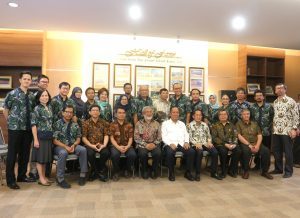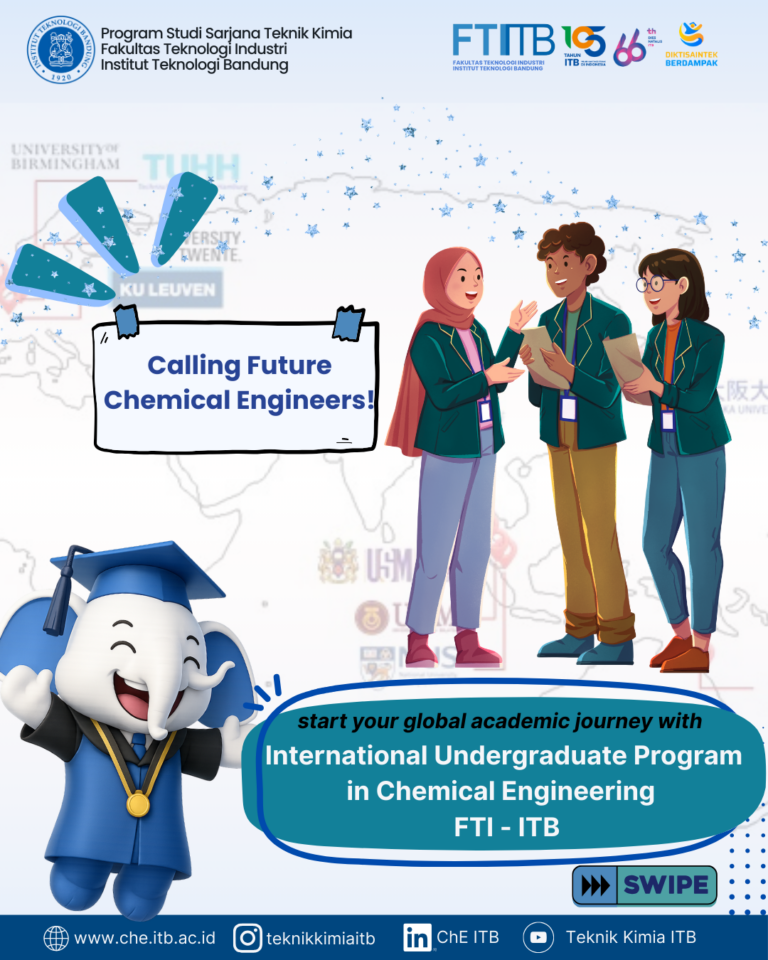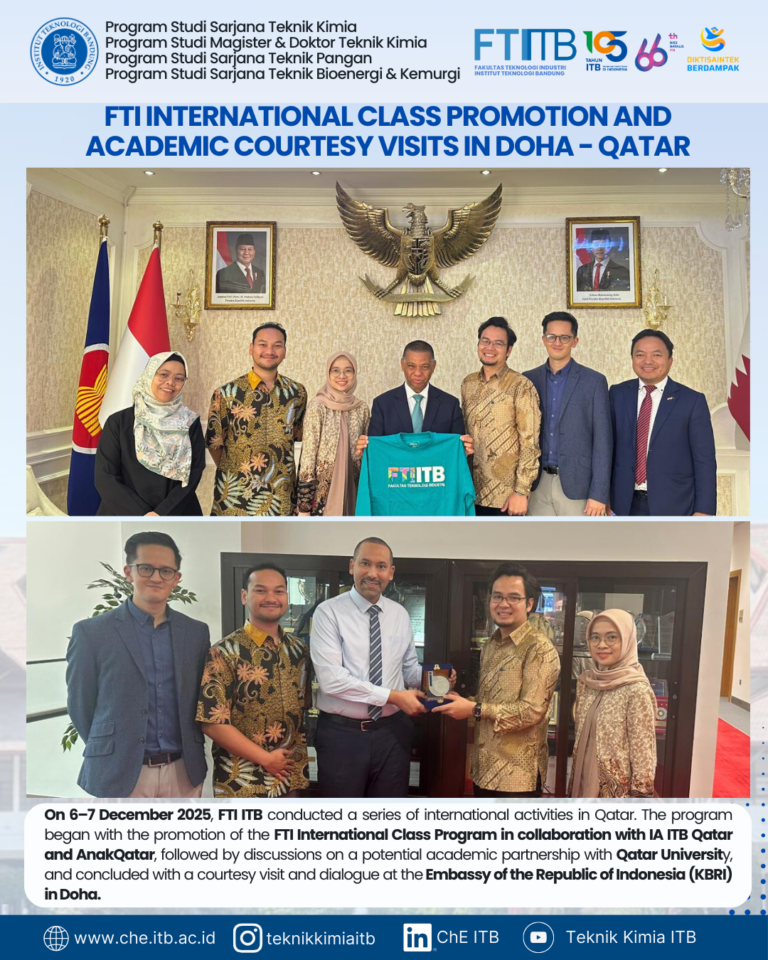Press Release
Nomor: 192/SP/HM/BKKP/X/2018
Inauguration of Industri-Katalis Pendidikan (Catalyst Teaching Industry)
Bandung, October 11, 2018, Minister of Research, Technology and Higher Education of the Republic of Indonesia inaugurated the Catalyst Teaching Industry in the Laboratory of Chemical Reaction Engineering and Catalysts, Chemical Engineering Program, Faculty of Industrial Technology, ITB (TRK ITB). This program is related to the innovation strengthening program obtained by TRK ITB since 2017. This year is the implementation of the second year program.
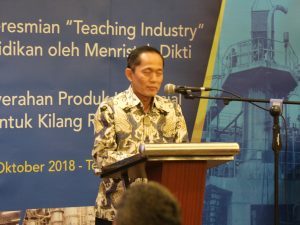
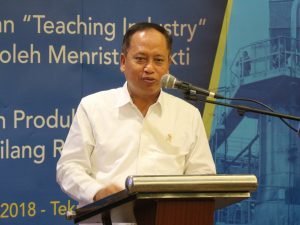
The ITB Education-Catalyst development and enforcement program has been preceded by a series of exploratory studies in designing and synthesizing catalysts, working with various national process industries, Since 25 years ago.
Together with PT Pupuk Iskandar Muda, TRK ITB collaborated to build adsorbents to clean natural gas by absorbing H2S impurities. The adsorbent which was later named PIMIT-B1 was commercially produced and has been used in various gas processing industries.
Together with PT Pertamina (Persero), TRK ITB has worked together to design and synthesize hydro naphtha processing catalysts and Ni and Mo metal-based diesel. Some research results in the synthesis of these catalysts have the potential to be commercialized.
TRK ITB is funded by BPDS KS (Badan Pengelola Dana Perkebunan Kelapa Sawit), innovates catalysts to produce gasoline and chemicals and palm oil. Now, almost all of the research carried out at the ITB TRK is oriented towards efforts to commercialize research results.
ITB Education-Catalyst Industry consists of 3 sections, which as :
- The catalyst production unit, this unit has a crucial role in bridging lab-scale research. Pilot scale and commercial scale. Educational Industry-Catalysts is designed as a production unit for catalysts with a capacity of 5 kg for each batch. This process unit is needed for the evaluation of catalyst performance that requires a large amount of catalyst.
- The catalyst characterization unit, which consists of various tools to evaluate the physical and chemical properties of catalysts, such as measuring the surface properties of catalysts, adsorption properties, oxidation-reduction properties of catalysts, and others. This unit serves to evaluate and control catalyst quality, and
- The catalyst performance evaluation unit, which consists of several high-pressure fixed bed tubular reactors and partisan reactors.
To support education, the Education-Catalyst Industry is used as a unit to implement theories of catalyst synthesis, catalyst characterization and evaluation of reactor performance and catalyst performance.
The teaching staff involved is 6 (six) people. They are who teach subjects in Chemical Reaction Engineering, Catalysts and Catalysis, Analysis and Evaluation of Industrial Reactors, Methods of Measurement and Analysis, Process Design, Process Evaluation, and several courses from Bioenergy and Energy Engineering.
Students of the lecture participants will get the theory through discussion and tutorials in the classroom. Then they implemented the theory in the Industrial-Educational Catalyst facility. Students involved are Chemical Engineering students Strata 1, 2 and 3.
On this occasion, the Minister of Research, Technology and Higher Education also symbolically handed over 17 tons of catalysts produced by TRK ITB in collaboration with PT Pertamina (Persero), to be used at the Cilacap RU-IV refinery PT Pertamina (Persero). The catalyst from the development of TRK ITB and PT Pertamina (Persero) was given the name PK 230 TD, which was used to clean the diesel fraction of impurities of sulfur and nitrogen compounds. This red and white catalyst is the only catalyst synthesized with national technology and is used in commercial processing units such as in petroleum refining units.
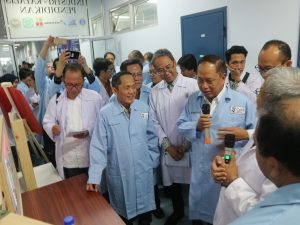
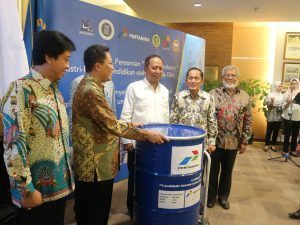
After this, several catalysts for the production of biofuel from vegetable oils will be tested in several commercial units by PT Pertamina (Persero). The catalyst for vegetable avtur production from palm kernel oil will be tested in RU-IV Cilacap, and the catalyst for the production of vegetable diesel from palm oil will be tested on RU-II Dumai.
These results directly show that the innovation strengthening program designed and initiated by the Kemenristekdikti has a direct impact on the acceleration of the implementation of research results that lead to the commercialization of research results.
